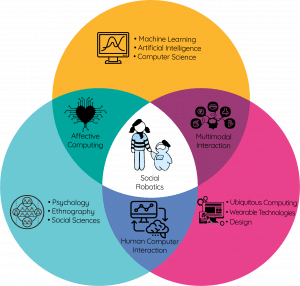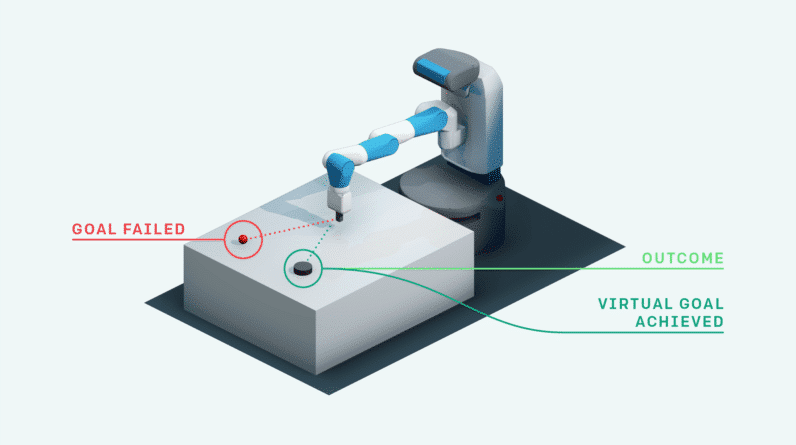In the ever-evolving world of retail, artificial intelligence (AI) is revolutionizing the way businesses interact with their customers. By harnessing the power of AI, retailers are able to create personalized experiences that enhance customer satisfaction and loyalty. Through advanced data analysis and machine learning algorithms, AI technology is turning shopping into a tailor-made journey for each individual, ensuring that every customer feels valued and understood. This article explores the ways in which AI is transforming the retail industry, from personalized recommendations to seamless virtual shopping experiences, ultimately revolutionizing the customer experience as we know it.

I. AI in Retail: Overview
A. Introduction to AI in Retail
AI, or Artificial Intelligence, has revolutionized various sectors, and the retail industry is no exception. With the power of AI, retailers can now harness the immense potential to personalize customer experiences, enhance customer satisfaction, increase sales and revenue, streamline operations, and gain valuable market insights. AI in retail refers to the use of data-driven algorithms and machine learning processes to analyze vast amounts of customer data, predict consumer behavior, and deliver personalized experiences tailored to individual customers.
B. Importance of AI in Retail
The importance of AI in the retail industry cannot be overstated. In an era where customers demand personalized experiences and expect seamless interactions, AI can provide retailers with the tools to meet and exceed these expectations. By leveraging AI technology, retailers can create tailor-made experiences for each customer, improving customer satisfaction levels and fostering customer loyalty. Additionally, AI allows retailers to optimize inventory management, enhance operational efficiency, and gain valuable insights into market trends and consumer preferences.
C. Current Trends in AI in Retail
The retail industry has been quick to embrace AI, and there are several notable trends that have emerged. One such trend is the use of AI-powered recommendation systems, which analyze customer data to provide personalized product recommendations. Chatbots and virtual assistants have also gained popularity, enabling retailers to provide automated customer support and assistance. Augmented reality and virtual reality technologies are transforming the way customers shop, with virtual try-on experiences and immersive product demonstrations becoming increasingly common. Smart shelves and automated checkouts are streamlining the shopping process, while advanced inventory management systems powered by AI are optimizing stock levels and reducing wastage.
II. Personalization in Retail
A. Definition and Importance of Personalization in Retail
Personalization in retail refers to tailoring the shopping experience to meet the unique preferences and needs of individual customers. Rather than offering a one-size-fits-all approach, retailers use customer data and AI algorithms to deliver customized recommendations, offers, and interactions. Personalization is crucial in retail because it allows retailers to forge deeper connections with their customers, enhance engagement, and ultimately drive sales. By addressing customers’ specific desires and anticipating their needs, personalized experiences create a sense of individualized care that fosters customer loyalty and satisfaction.
B. Benefits of Personalization in Retail
The benefits of personalization in retail are multifaceted. Firstly, personalization creates a positive and memorable shopping experience for customers, increasing their satisfaction and likelihood of repeat purchases. Customers are more likely to feel valued and understood when retailers cater specifically to their preferences, leading to enhanced customer loyalty. Secondly, personalization enables retailers to maximize sales and revenue by recommending products and offers that align with customers’ interests and past behaviors. By presenting customers with personalized options, retailers can increase upselling and cross-selling opportunities. Finally, personalization allows retailers to leverage customer data and insights to improve their marketing strategies, optimizing campaigns and driving targeted promotions.
C. Challenges in Implementing Personalization
While the benefits of personalization are undeniable, there are also challenges that retailers must overcome when implementing personalized experiences. One such challenge is data management and privacy concerns. Retailers must ensure that they handle and protect customer data ethically and in compliance with applicable regulations. Another challenge is the need for accurate and comprehensive customer data. To deliver meaningful personalization, retailers require a holistic view of each customer’s preferences, purchase history, and interactions, which may be scattered across multiple systems and platforms. Finally, personalization efforts must strike the right balance between customization and intrusiveness. Retailers need to carefully tailor their approach to avoid coming across as overly intrusive or invasive to customers.

III. Role of AI in Personalization
A. How AI Enhances Personalization
AI plays a crucial role in enhancing personalization by leveraging data-driven algorithms and machine learning models to analyze vast amounts of customer data. These algorithms can identify patterns, preferences, and behavior trends, enabling retailers to tailor their offerings to individual customers. AI algorithms can process and interpret complex data sets at a speed and scale that surpass human capabilities. This allows retailers to deliver real-time and highly relevant personalized recommendations, offers, and content. AI also enables continuous learning and adaptation, as the algorithms can self-improve based on new data inputs, ensuring that personalization efforts remain up to date and accurate.
B. Examples of AI-based Personalization in Retail
Several examples demonstrate how AI is transforming personalization in the retail industry. One such example is personalized product recommendations. AI algorithms analyze individual customer data, including purchase history, browsing behavior, and demographic information, to generate tailored suggestions. These recommendations enhance the customer’s shopping experience by presenting them with products they are more likely to be interested in. Another example is dynamic pricing, where AI algorithms adjust product prices in real-time based on market demand, customer behavior, and inventory levels. This allows retailers to offer personalized pricing that maximizes revenue while maintaining competitiveness. AI-powered chatbots and virtual assistants are also becoming increasingly common, providing personalized customer support and recommendations in real-time.
IV. Customer Experience Enhancement in Retail
A. Definition and Importance of Customer Experience Enhancement
Customer experience enhancement refers to the deliberate efforts made by retailers to improve every interaction and touchpoint a customer has with their brand. It encompasses various aspects, including ease of navigation, personalized recommendations, streamlined checkout processes, responsive customer service, and experiential elements. Creating a positive and memorable customer experience is essential for retailers, as it builds brand loyalty, drives customer advocacy, and ultimately cultivates long-term relationships. In today’s competitive retail landscape, providing exceptional customer experiences is a differentiating factor that can make or break a business.
B. Key Factors for a Great Customer Experience
Several key factors contribute to a great customer experience in retail. Firstly, personalization plays a vital role, as discussed earlier. Customers expect retailers to understand their preferences and needs, and personalized recommendations, offers, and interactions are crucial in meeting these expectations. Secondly, convenience is paramount. Retailers should strive to make the shopping process as seamless and frictionless as possible, whether it be through intuitive website navigation, efficient checkout processes, or user-friendly mobile apps. Thirdly, responsive and helpful customer service is essential. Retailers should be readily available to address customer inquiries, resolve issues promptly, and provide support throughout the customer journey. Finally, retailers can enhance the customer experience by incorporating experiential elements, such as immersive product demonstrations, interactive displays, or augmented reality experiences.
C. How AI Enhances Customer Experience
AI technology offers numerous ways to enhance the customer experience in retail. Firstly, AI-powered chatbots and virtual assistants provide instant and personalized customer service, available 24/7. These systems can understand natural language, respond to customer inquiries, and offer relevant product recommendations. Automated customer support not only increases customer satisfaction but also reduces the burden on human customer service agents. Secondly, AI-powered recommendation systems deliver personalized product recommendations that align with individual customer preferences, improving the shopping experience and increasing the likelihood of conversion. Furthermore, AI can analyze vast amounts of customer data to identify pain points in the customer journey, enabling retailers to proactively address issues and improve areas that impact the overall customer experience.

V. AI Applications for Customer Experience Enhancement
A. Chatbots and Virtual Assistants
Chatbots and virtual assistants are increasingly being utilized by retailers to enhance the customer experience. These AI-powered systems can engage with customers in real-time, providing instant support and personalized recommendations. Chatbots can assist with various inquiries, such as product information, order tracking, or returns. Virtual assistants can even guide customers through the entire purchasing process, offering suggestions and answering questions along the way. The convenience and responsiveness of chatbots and virtual assistants empower customers to receive immediate assistance whenever they need it, enhancing the overall customer experience.
B. Recommendation Systems
AI-powered recommendation systems have become a staple in the retail industry. By analyzing customer data, these systems can generate personalized product recommendations tailored to each customer’s preferences, past purchases, and browsing behavior. Whether it be suggesting complementary products, highlighting personalized offers, or curating relevant content, recommendation systems play a vital role in enhancing the customer experience. By presenting customers with options they are likely to be interested in, retailers can improve engagement, increase sales, and foster customer loyalty.
C. Augmented Reality and Virtual Reality
Augmented Reality (AR) and Virtual Reality (VR) are transformative technologies that allow customers to interact with products and experiences in immersive ways. In retail, AR and VR enable customers to visualize products in a virtual space, try on virtual clothing, or even walk through a virtual store. These experiences enhance the customer experience by providing a realistic and engaging way to explore products, boosting confidence and reducing purchase hesitation. By incorporating AR and VR elements, retailers can create memorable and interactive experiences that differentiate their brand and attract customers.
D. Smart Shelves and Automated Checkouts
AI-powered smart shelves and automated checkout systems are revolutionizing the shopping experience. Smart shelves utilize computer vision and AI algorithms to track product availability, monitor stock levels, and provide real-time inventory management. This automation ensures that products are always available on the shelves, reducing the likelihood of out-of-stock situations and enhancing the customer experience. Automated checkout systems eliminate the need for traditional cashiers, enabling customers to scan and pay for their items seamlessly. This streamlined checkout process eliminates queues and minimizes wait times, contributing to an improved customer experience.
E. Inventory Management
AI technology plays a crucial role in optimizing inventory management for retailers. By analyzing historical sales data, market trends, and external factors, AI algorithms can predict demand patterns, enabling retailers to optimize stock levels and reduce wasted inventory. Effective inventory management ensures that customers can find the products they need when they need them, increasing customer satisfaction and reducing the likelihood of lost sales due to stockouts. AI-driven inventory management systems also improve operational efficiency by automating replenishment processes and minimizing manual intervention.
VI. Impacts and Benefits of AI in Retail
A. Improved Customer Satisfaction
One of the most significant impacts of AI in retail is the improvement of customer satisfaction. By leveraging AI to deliver personalized experiences, retailers can cater to individual customer preferences, anticipate their needs, and provide relevant recommendations. This level of personalized attention creates a positive and memorable shopping experience, fostering customer satisfaction and loyalty. Additionally, AI-powered chatbots and virtual assistants provide instant and helpful customer support, ensuring that customers receive timely assistance whenever they require it.
B. Increased Sales and Revenue
AI technology has the potential to significantly boost sales and revenue in the retail industry. By analyzing vast amounts of customer data and using machine learning algorithms, retailers can offer personalized product recommendations and tailored offers that increase the likelihood of conversion. When customers are presented with products that align with their interests and needs, they are more likely to make a purchase, leading to increased sales. Furthermore, AI algorithms can optimize pricing strategies, dynamically adjusting prices based on supply and demand, maximizing revenue while ensuring competitiveness.
C. Streamlined Operations and Efficiency
AI technology enables retailers to streamline operations and enhance their overall efficiency. Automation of tasks such as inventory management, checkout processes, and customer support reduces the burden on human resources, allowing employees to focus on value-added activities. By automating routine and repetitive tasks, retailers can improve operational efficiency, reduce costs, and allocate resources more effectively. AI-powered systems also enable real-time data analysis, giving retailers valuable insights into market trends, customer behavior, and operational performance, facilitating data-driven decision-making.
D. Enhanced Market Insights and Decision Making
AI-driven data analysis provides retailers with enhanced market insights and empowers data-driven decision-making. By analyzing vast amounts of customer data, retailers gain a deep understanding of consumer preferences, trends, and behavior patterns. This knowledge allows retailers to tailor their product offerings, marketing campaigns, and overall strategies to meet customer expectations more effectively. With AI technology, retailers can identify untapped opportunities, optimize marketing spend, and make informed decisions that drive business growth.

VII. Challenges and Limitations
A. Data Privacy and Security
One of the primary challenges associated with AI in retail is ensuring data privacy and security. As retailers gather and analyze large volumes of customer data, it is essential to handle this data responsibly and ethically. Retailers must comply with data protection regulations and prioritize the security of customer information. Adequate measures such as encryption, secure data storage, and strict access controls are necessary to protect against data breaches and ensure customer trust.
B. Ethical Considerations and Bias
Ethical considerations and potential biases associated with AI algorithms pose another challenge. AI algorithms rely on historical data for training, and if this data contains biases or reflects existing societal inequalities, it may lead to biased outcomes. Retailers must ensure that their AI systems are designed and trained with fairness and inclusivity in mind, avoiding discriminatory practices. Regular audits and monitoring of AI algorithms are necessary to identify and address any biases or ethical concerns that may arise.
C. Integration and Adoption Challenges
Integrating and adopting AI technologies into existing retail systems can be a complex and challenging task. Retailers may face integration challenges when trying to connect AI systems with their existing technology infrastructure. Additionally, the adoption of AI may require changes in organizational processes, workforce skill sets, and cultural attitudes towards technology. Retailers must invest in training and education to equip their employees with the necessary skills to leverage AI effectively. Moreover, creating a culture that embraces and supports AI adoption is crucial for successful implementation.
VIII. Future Outlook
A. Advancements in AI Technology
As AI technology continues to advance, the future of AI in retail holds great promise. AI algorithms and machine learning models are becoming more sophisticated, enabling deeper customer insights and more accurate personalized recommendations. Natural language processing and computer vision capabilities are also evolving, enhancing the functionalities of chatbots, virtual assistants, and immersive experiences. As newer technologies, such as edge computing, IoT, and 5G, gain traction, AI in retail will have greater potential for real-time data analysis and faster decision-making.
B. Evolution of Customer Expectations
The evolution of customer expectations will significantly impact the future of AI in retail. Customers are increasingly adopting digital channels and expect seamless omnichannel experiences. Retailers will need to leverage AI to ensure consistency and personalization across platforms, integrating online and offline touchpoints seamlessly. Furthermore, as sustainability and ethical consumption become more important to customers, AI in retail can enable transparency in the supply chain and provide information on ethical sourcing, carbon footprints, and sustainable practices.
C. Retail Transformation and Disruption
AI is poised to drive transformation and disruption in the retail industry. Traditional retail models will need to adapt to the changing landscape, embracing AI technologies to remain competitive. Brick-and-mortar stores may leverage AI-powered technologies such as smart shelves, automated checkouts, and augmented reality experiences to enhance in-store shopping experiences. Online retailers will continue to optimize their e-commerce platforms with AI-driven personalization, recommendation systems, and virtual assistants. The boundaries between online and offline retail will blur further as retailers integrate digital and physical channels seamlessly.
D. Predictions for the Future of AI in Retail
Looking ahead, the future of AI in retail holds exciting possibilities. AI-powered virtual shopping assistants that use facial recognition and natural language processing could become commonplace, offering highly personalized and interactive experiences. Machine learning algorithms will continue to refine product recommendations, increasingly catering to customers’ dynamic preferences and staying ahead of evolving trends. AI will also play a vital role in sustainability efforts, enabling retailers to optimize supply chains, reduce waste, and make data-driven decisions that align with environmental and social responsibility.

IX. Successful AI Implementation in Retail
A. Strategic Planning and Alignment
Successful AI implementation in retail begins with strategic planning and alignment. Retailers should carefully assess their goals, challenges, and opportunities and develop a clear roadmap for AI adoption. This roadmap should define key objectives, identify relevant use cases, and establish metrics for success. Alignment across all levels of the organization is crucial to ensure that AI efforts align with broader business strategies and that stakeholders are on board with the transformation.
B. Data Collection and Integration
Effective AI implementation requires accurate and comprehensive data collection and integration. Retailers need to evaluate their existing data sources, determine what additional data is needed, and develop mechanisms to collect and store this data securely. Integration of data from various touchpoints, such as online platforms, point-of-sale systems, and customer support channels, is essential to obtain a holistic view of customer behavior and preferences. Data governance and quality assurance processes should be established to ensure data integrity and reliability.
C. Collaborative Partnerships
Collaborative partnerships can play a significant role in successful AI implementation. Retailers can partner with AI technology providers and solution vendors to leverage their expertise and accelerate the implementation process. Collaborations with data analytics companies can also facilitate advanced data analysis and modeling. By working together with external partners, retailers can access cutting-edge AI technologies, gain industry insights, and mitigate implementation risks.
D. Continuous Testing and Optimization
Continuous testing and optimization are critical for successful AI implementation in retail. Retailers should establish testing frameworks to evaluate AI algorithms, monitor their performance, and identify areas for improvement. Regular feedback loops and iterative processes enable retailers to fine-tune AI systems and address any biases or limitations. Monitoring customer feedback, tracking key performance indicators, and conducting A/B testing are essential to ensure that AI systems deliver the desired outcomes and continuously improve.
X. Conclusion
A. Recap of AI’s Impact in Retail
AI technology is transforming the retail industry, enhancing personalization and customer experience. Through AI-powered algorithms and machine learning processes, retailers can deliver personalized experiences, recommendations, and interactions tailored to each individual customer. Personalization not only improves customer satisfaction but also drives sales and revenue. AI also enhances the overall customer experience by streamlining operations, providing responsive customer support, and offering immersive experiences. Retailers can leverage AI applications such as chatbots, recommendation systems, augmented reality, and automated checkouts to enhance the customer journey.
B. The Path Forward: Embracing AI for Personalization and Customer Experience Enhancement
The future of AI in retail holds immense potential. As AI technology advances and customer expectations continue to evolve, retailers must embrace AI for personalization and customer experience enhancement. By strategically planning AI initiatives, collecting and integrating data effectively, forging collaborative partnerships, and continuously testing and optimizing AI systems, retailers can successfully implement AI solutions that revolutionize their operations and customer interactions. The path forward for retailers lies in embracing AI as a transformative tool that allows them to provide exceptional personalized experiences and exceed customer expectations in today’s competitive retail landscape.






